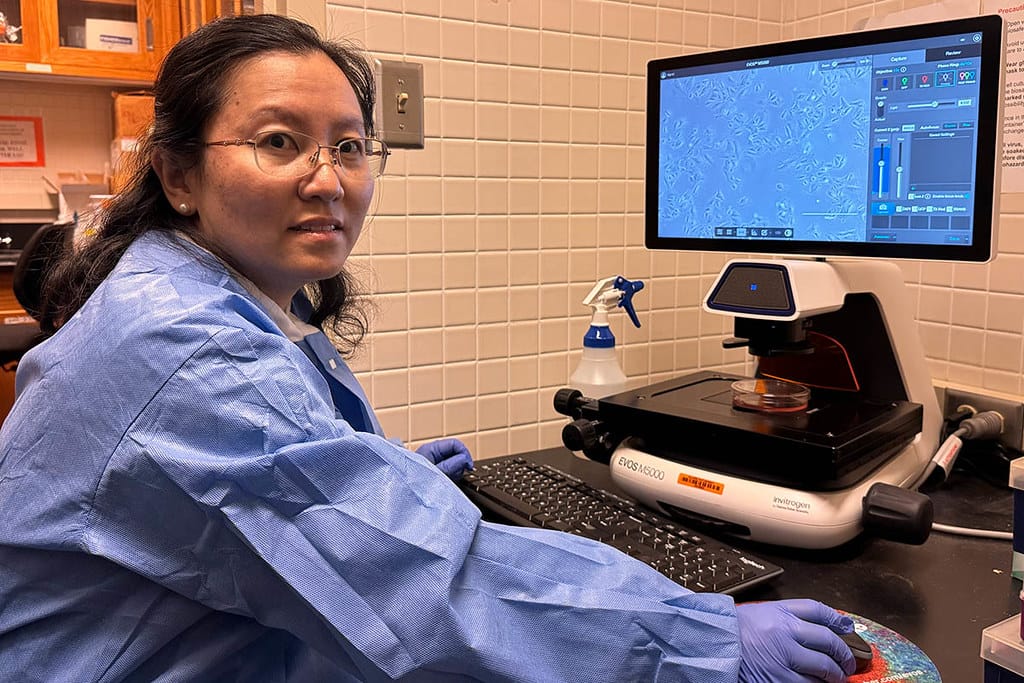OSU obesity research could lead to cell-based therapy
Xia Lei, assistant professor in the OSU Department of Biochemistry and Molecular Biology, is studying white blood cells in fat tissue, similar to the fat cells pictured above, to determine how they regulate inflammation caused by serious health conditions like diabetes.


More than 40% of adults and more than 19% of children have obesity in the U.S., according to the Centers for Disease Control and Prevention. Oklahoma has one of the highest obesity rates in the nation at over 40% for adults and over 30% for children.
To improve these grim statistics, Oklahoma State University Ag Research scientists are studying how one of the human body’s best-kept secrets in the form of a protein could help fight obesity.
OSU researchers recently discovered a protein called CTRP6 secreted by white blood cells in adipose tissue, the primary tissue that stores fat in the body. The white blood cells, also known as macrophages, are prominently found in obese adipose tissue, making up to 50% of all adipose tissue cells in the obese state, compared to just 5% in the lean state. Macrophages play a crucial role in regulating inflammation within adipose tissue, contributing to obesity and serious health conditions like diabetes.
“We discovered that CTRP6 causes macrophages to become more aggressive and release a lot of cytokines that promote inflammation. This increased inflammation can lead to problems like insulin resistance and worsening obesity,” said Xia Lei, assistant professor in the OSU Department of Biochemistry and Molecular Biology.
Lei is currently studying the behavior of the CTRP6 protein during the development of obesity.
“Macrophages are flexible cells that respond to their environment. They can either secrete cytokines that worsen inflammation or release anti-inflammatory ones to aid in tissue repair,” Lei said. “We recently found that CTRP6 plays a key role in altering the behavior of macrophages, and we are now exploring whether modifying this protein could help these cells reduce inflammation.”
Scientists have developed specially modified macrophages to treat cancer and liver diseases. Lei said her team hopes to do something similar by creating modified macrophages to treat obesity and diabetes.
OSU Ag Research is Oklahoma's premier research and technology development agency in agriculture, natural resources and the life sciences.
MEDIA CONTACT: Alisa Boswell-Gore | Office of Communications & Marketing, OSU Agriculture | 405-744-7115 | alisa.gore@okstate.edu





